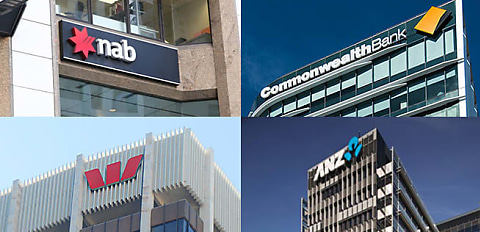Following the Albanese government handing down its third budget, economists from the major banks have unpacked what this could imply for the Reserve Bank of Australia’s (RBA) stance on interest rates going forward.
The budget papers said the Consumer Price Index (CPI) is expected to drop to 3.5 per cent by the end of the financial year and down to 2.75 per cent (within the RBA’s target band) by the end of the 2024/25 financial year.
However, the Treasury’s forecast of inflation returning to the target band by the end of 2024 is below the RBA’s, which has forecast inflation at the end of the year to reach 3.8 per cent before lowering to the target range in the second half of 2025.
Based on what the federal government revealed, ANZ’s economics team said that the amount of net new spending outlined in the budget 2024/25 was consistent with its views that there would be additional fiscal easing of around ¼ to ½ of GDP.
“As a result, there is no direct impact on our near-term growth, inflation, or RBA forecasts,” ANZ’s economics team said.
“Of more importance for those forecasts will be how consumers respond to the Stage 3 tax cuts, to which we’ll be looking to consumer confidence for an early guide.
“That said, we also see nothing in the budget to dissuade us from our view that the coming rate cut cycle be a shallow one, with ANZ Research only looking for three rate cuts in total.”
Meanwhile, the Commonwealth Bank of Australia’s (CBA) economics team said that the RBA is “likely to remain cautious” with headline inflation forecast to be 2.75 per cent in 2024/25.
“We had flagged that fiscal policy was one of the risks to our base case that monetary policy easing would start in November this year and that the neutral cash rate of close to 3 per cent would be reached by the end of 2025,” CBA’s economics team said.
“The risk is now more real that the first interest rate cut could be delayed and that the neutral cash rate is higher than we currently estimate due to the expansionary fiscal setting and the high level of investment in the economy.”
NAB’s economics team said that while the decisions taken in this year’s budget are “on balance a loosening in policy”, they only marginally add to the central bank’s difficulty in returning inflation to the target band of 2–3 per cent.
“Our initial assessment is they do not have a material impact on our expectations for the growth outlook or the path of inflation and monetary policy,” it said.
NAB’s economics team noted the inflation forecasts in the budget, indicating a “more rapid improvement” in the near term to what the major bank and the RBA expect (NAB 3 per cent and RBA 3.2 per cent) by mid-2025.
“This largely reflects the impact of energy and rent subsidies on measured inflation – an effect which the RBA is certain to look through when setting monetary policy,” it said.
“Nonetheless, at this stage we don’t see the fiscal deterioration as being sufficient to change our rate view, still seeing rates on hold until late this year.
“Westpac’s economics team stated that the dominant risk continues to be the “trajectory for inflation, the demand support from fiscal measures potentially slowing the pace of disinflation and delaying the point at which monetary easing comes into frame.”
[RELATED: Treasurer hands down budget 2024/25]

